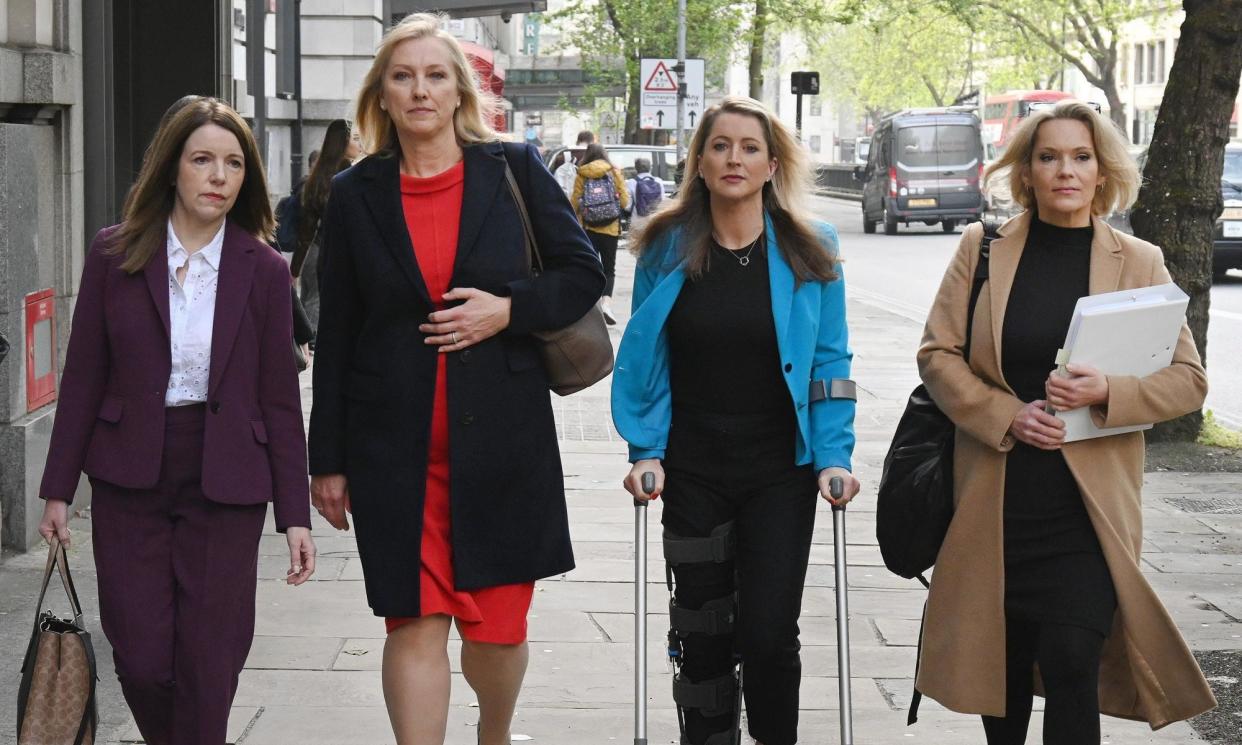Tribunal excludes equal pay from female presenters’ claim against BBC

Four female BBC presenters who have taken legal action against their employer will not be able to include equal pay as part of their claim, an employment tribunal has ruled.
Martine Croxall, Karin Giannone, Kasia Madera and Annita McVeigh have accused the broadcaster of conducting a “sham recruitment exercise” after they lost their jobs when the BBC merged its domestic and global news channels last year.
The women, aged between 48 and 54, said they had been discriminated against because of their sex, age and union membership and had been “set up to fail” in the process of recruiting chief presenters for the new BBC News channel.
After a two-day preliminary hearing – which established the structure of a full tribunal scheduled to be heard next March – the employment tribunal judge Sarah Goodman concluded that the women, who had previously reached settlements with the BBC, could not bring new equal pay claims.
She allowed the women to take their claims forward as a group, rather than as individuals.
Lawyers for the BBC had described the situation as being like “seeking a second bite of the cherry on the same set of facts”.
At the tribunal on Wednesday Croxall, who had worked at the BBC since 1991 and as a chief presenter with the BBC News channel and BBC World News since 2001, said she would not have made a settlement with her employer if she had thought it would prevent her from making future claims.
Referring to previous settlements she had made, Croxall told the court: “The BBC grinds you down, it breaks you. You don’t feel like you can continue with it in the moment and that’s why I’m here.”
The women said they had not been paid equally compared with their male counterparts since February 2020, and there was a gap of about £36,000 a year in pensionable salary as of February 2023.
A BBC spokesperson said: “We are pleased with the result and that the tribunal has accepted our position. We will not be commenting further at this stage.”
It is understood the BBC is confident it applied a rigorous and fair recruitment process and has complied with equal pay legislation.
In a joint statement the women said they were pleased to have their discrimination claims heard together, which had been opposed by BBC lawyers. They said: “We remain committed to seeking equal pay despite the BBC’s lawyers relying on a novel argument to prevent our claims progressing.
“We await the judge’s written ruling, to which we will give further consideration.”

 Yahoo News
Yahoo News 
